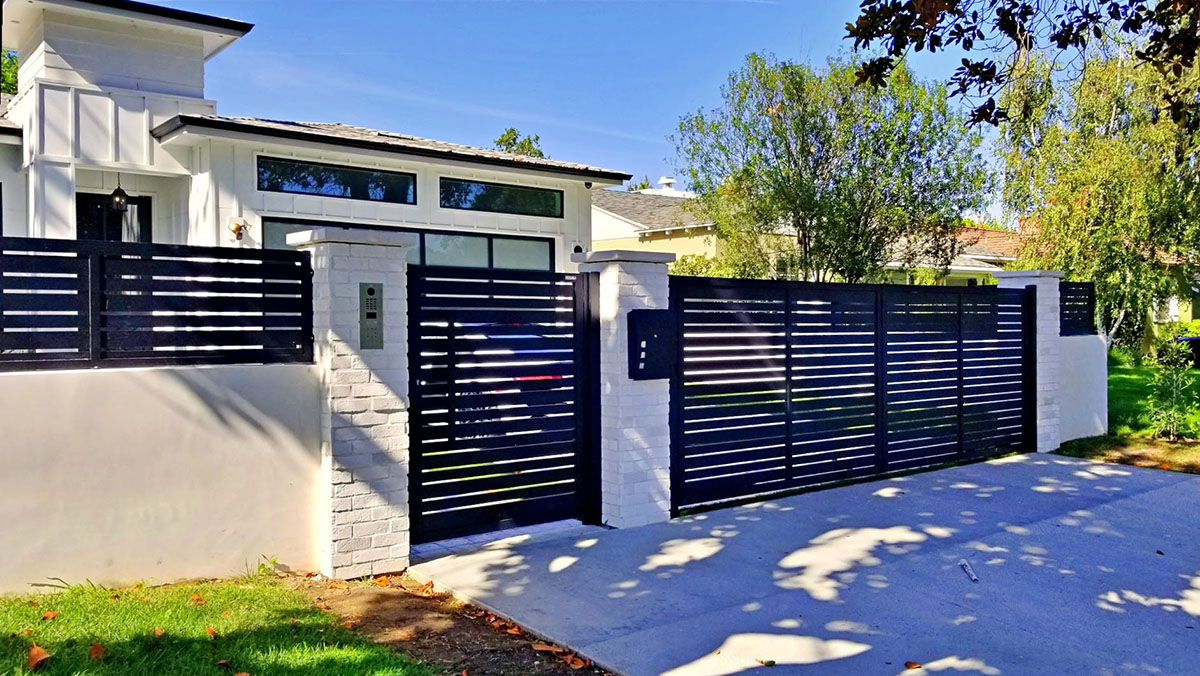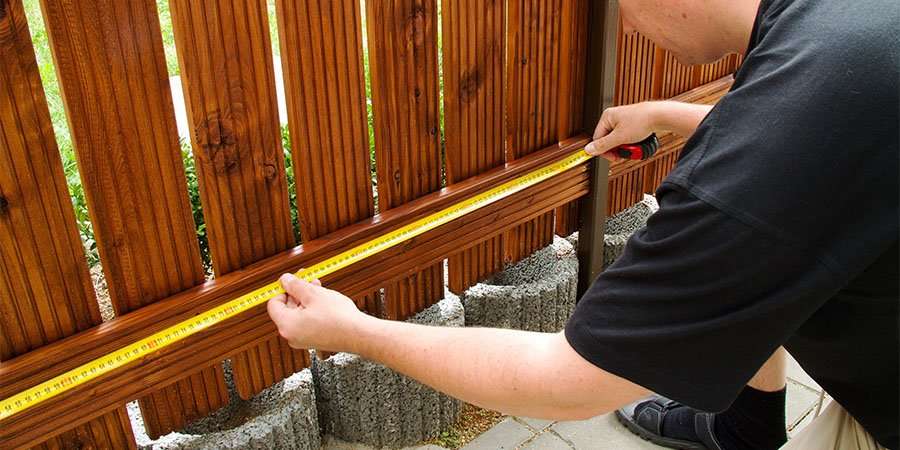All Categories
Featured
When you decide to set up a fence around your household property, it's important to understand the authorization requirements details to your area. Below's a thorough look at the permits you might need for fence installment.
Why Do You Required a Permit for Fencing Installment? A fence is greater than simply an obstacle in between homes-- it can impact security, home worth, visual appeals, and even environmental problems. Regional federal governments call for licenses to make certain that fencings meet specific requirements and do not trigger problems for energies, neighbors, or the neighborhood in its entirety. Permits likewise ensure that the setup adheres to zoning regulations, building codes, and safety and security guidelines.
![]()
Types of Licenses You May Require. Building License. A structure license is among one of the most typical authorizations needed for fencing installation. This authorization ensures that the fence fulfills regional building ordinance. If you're constructing a fencing over a certain elevation (commonly over 6 feet), you'll likely need a building authorization. The local structure division will normally evaluate the website and evaluation plans to make sure the framework is secure and does not obstruct public spaces or produce dangers.
Zoning License. A zoning permit guarantees your fence complies with elevation, area, and setback regulations. Fences may require to be set back a particular range from walkways, roadways, or property lines to protect against blockage or interference with energies.
HOA Authorization. If your home becomes part of a property owners association (HOA), you might require to look for authorization prior to installing a fence. HOAs normally have guidelines that regulate the appearances and structure of fences to ensure they are in consistency with the community. You may require to submit your strategies for approval, and the HOA might restrict fence elevation, material, or design.
Specialized Permits. In some areas, there might be additional permits needed for details scenarios. As an example, if your fence is near a secured environmental area or located in a disaster area, you might need to get specialized permits connected to environmental impact. In a similar way, if the fence remains in a location with below ground utilities, you might require to get clearance to prevent harmful pipes or cables.
![]()
Easement or Energy Firm Consent. Before mounting a fencing, it's vital to examine whether the residential property includes an easement, such as an energy easement, which could influence where you can position your fencing. Easements are areas of land designated for personal or public energies, and you might require authorization from the utility business or other authority to construct within this area.
Just How to Discover Out What Permits You Need. To ensure that you're complying with all the needed laws, here's just how you can determine the details licenses required for your fencing setup:
![]()
See Your Neighborhood Federal Government Workplace: The initial action is to consult your regional building or zoning department. Several cities and regions have guidelines offered online that specify what types of licenses are needed for fencing installation. If not, seeing the office or calling in individual can assist clear up the procedure. Inspect Your City's Website: Many districts offer details concerning fencing installations and the permits required through their official websites. Some internet sites even enable you to submit applications on the internet. Consult a Fencing Installation Expert: If you're not exactly sure about neighborhood policies, a professional fence service provider can assist. They know with the permitting procedure and can guide you with the steps. The Effects of Not Getting an Authorization. Falling short to secure the needed authorizations prior to installing a fencing can result in substantial repercussions. You may be fined or required to eliminate the fencing entirely.
Final thought. Installing a fencing around your property can add both safety and curb appeal, yet it's vital to ensure you're following the lawful action in the process. Investigating the particular authorization demands for your area, including structure licenses, zoning regulations, HOA approval, and energy approvals, will aid guarantee your fencing installment goes efficiently. Making the effort to understand these demands now can save you from expensive mistakes and prospective legal concerns down the line.
Why Do You Required a Permit for Fencing Installment? A fence is greater than simply an obstacle in between homes-- it can impact security, home worth, visual appeals, and even environmental problems. Regional federal governments call for licenses to make certain that fencings meet specific requirements and do not trigger problems for energies, neighbors, or the neighborhood in its entirety. Permits likewise ensure that the setup adheres to zoning regulations, building codes, and safety and security guidelines.

Types of Licenses You May Require. Building License. A structure license is among one of the most typical authorizations needed for fencing installation. This authorization ensures that the fence fulfills regional building ordinance. If you're constructing a fencing over a certain elevation (commonly over 6 feet), you'll likely need a building authorization. The local structure division will normally evaluate the website and evaluation plans to make sure the framework is secure and does not obstruct public spaces or produce dangers.
Zoning License. A zoning permit guarantees your fence complies with elevation, area, and setback regulations. Fences may require to be set back a particular range from walkways, roadways, or property lines to protect against blockage or interference with energies.
HOA Authorization. If your home becomes part of a property owners association (HOA), you might require to look for authorization prior to installing a fence. HOAs normally have guidelines that regulate the appearances and structure of fences to ensure they are in consistency with the community. You may require to submit your strategies for approval, and the HOA might restrict fence elevation, material, or design.
Specialized Permits. In some areas, there might be additional permits needed for details scenarios. As an example, if your fence is near a secured environmental area or located in a disaster area, you might need to get specialized permits connected to environmental impact. In a similar way, if the fence remains in a location with below ground utilities, you might require to get clearance to prevent harmful pipes or cables.

Easement or Energy Firm Consent. Before mounting a fencing, it's vital to examine whether the residential property includes an easement, such as an energy easement, which could influence where you can position your fencing. Easements are areas of land designated for personal or public energies, and you might require authorization from the utility business or other authority to construct within this area.
Just How to Discover Out What Permits You Need. To ensure that you're complying with all the needed laws, here's just how you can determine the details licenses required for your fencing setup:

See Your Neighborhood Federal Government Workplace: The initial action is to consult your regional building or zoning department. Several cities and regions have guidelines offered online that specify what types of licenses are needed for fencing installation. If not, seeing the office or calling in individual can assist clear up the procedure. Inspect Your City's Website: Many districts offer details concerning fencing installations and the permits required through their official websites. Some internet sites even enable you to submit applications on the internet. Consult a Fencing Installation Expert: If you're not exactly sure about neighborhood policies, a professional fence service provider can assist. They know with the permitting procedure and can guide you with the steps. The Effects of Not Getting an Authorization. Falling short to secure the needed authorizations prior to installing a fencing can result in substantial repercussions. You may be fined or required to eliminate the fencing entirely.
Final thought. Installing a fencing around your property can add both safety and curb appeal, yet it's vital to ensure you're following the lawful action in the process. Investigating the particular authorization demands for your area, including structure licenses, zoning regulations, HOA approval, and energy approvals, will aid guarantee your fencing installment goes efficiently. Making the effort to understand these demands now can save you from expensive mistakes and prospective legal concerns down the line.
Latest Posts
Find Cost-Effective Auto Repairs with Montclare’s Limited-Time Service Specials
Published en
1 min read
Learn About Leading Vehicle Maintenance Services in Chicago – Drive with Confidence
Published en
1 min read
Don’t Miss Special Auto Repair Deals in Chicago at Montclare Auto Repair
Published en
1 min read
More
Latest Posts
Find Cost-Effective Auto Repairs with Montclare’s Limited-Time Service Specials
Published May 25, 25
1 min read
Learn About Leading Vehicle Maintenance Services in Chicago – Drive with Confidence
Published May 25, 25
1 min read
Don’t Miss Special Auto Repair Deals in Chicago at Montclare Auto Repair
Published May 20, 25
1 min read